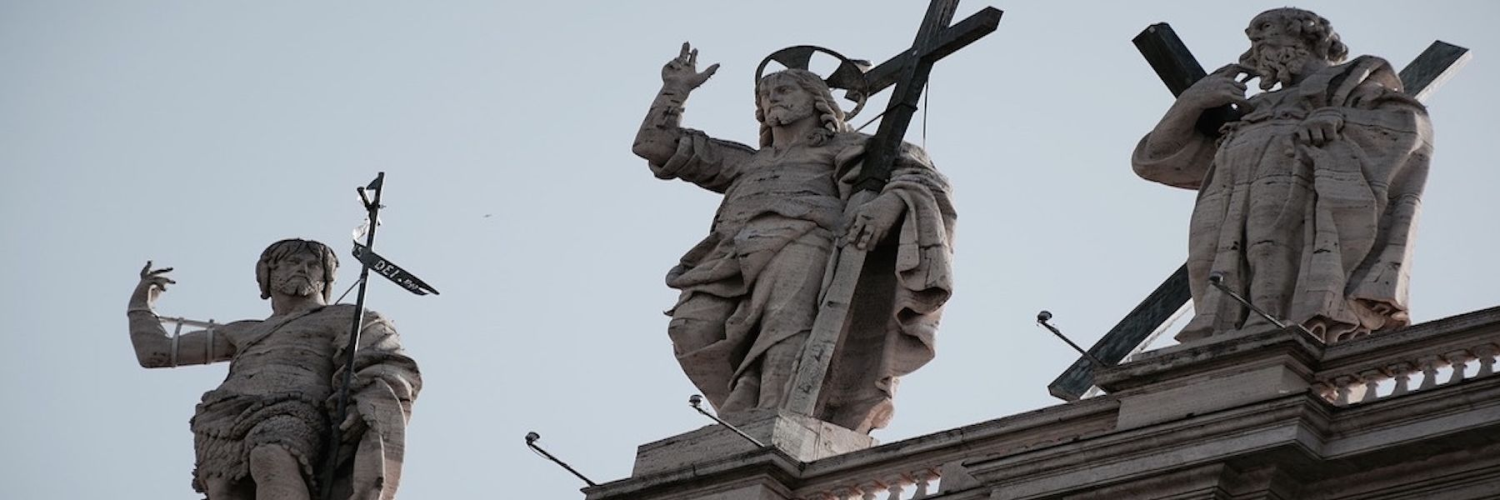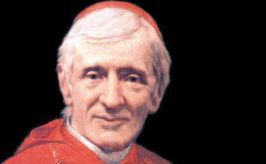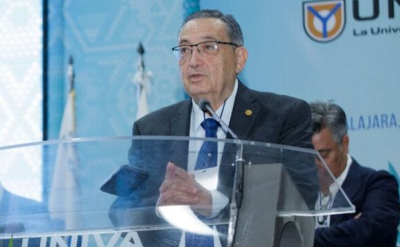News

Catholic universities and their theological roots: continuing to think about identity and mission for the future
The proposed reflection takes place at a pivotal moment, at the start of a new pontificate, after the recent General Assembly of the International Federation of Catholic Universities (FIUC) and ahead of several major academic and ecclesiastical events.of the International Federation of Catholic Universities (IFCU) and ahead of several major academic and ecclesial events.
On the one hand, it follows on from FIUC's 28ᵉ General Assembly, held from July 28 to August 1ᵉʳ, 2025 in Guadalajara Guadalajara (Universidad del Valle de Atemajac, UNIVA, Mexico), which marked the conclusion of the Federation's centenary celebrations. During the Assembly, Fr. Francisco Ramírez Yáñez was elected President of IFCU for 3 years, and Pope Leo XIV addressed a strong message to Catholic universities: they are called to be "paths of the spirit towards God", to resist the "siren songs" of contemporary culture, and to keep the wisdom of Christ as their compass.
On the other hand, this reflection turns towards a horizon of encounters:
- the 15ᵉ edition of the Leuven Encounters in Systematic Theology (LEST-XV), held at KU Leuven from October 22 to 25, 2025, on the theme Catholicity, Theology, and the University: Conjectures in a Complex World;
- the ODUCAL-UCSC Congress, organized by Universidad Católica de la Santísima Concepción (Chile) in early October 2025, on the theme "Ex Corde Ecclesiae, 35 ans: Identité, Mission et Espérance";
- and, in a broader ecclesial register, the Jubilee of the World of Education (October 27 - November 1ᵉʳ 2025) organized in Rome by the Dicastery for Culture and Education, which brought together teachers, students and academic leaders from all over the world. The meeting will include a "Global Education Village" (October 31, Via della Conciliazione), where Catholic universities have been invited to present their research projects and educational initiatives, before a solemn gathering in St. Peter's Square on November 1ᵉʳ, around the Pope. The Pontificia Università della Santa Croce, for example, organized a major symposium on "Purpose of the University: to inspire the governance, culture and people of the organization", in partnership with our Federation.
These milestones are further illuminated by the speech Pope Leo XIV delivered on May 20, 2025, on the occasion of the 10ᵉ anniversary of Laudato Si', to Catholic university rectors and leaders gathered in Rio de Janeiro. In this address, he invited universities to be "bridge-builders" in favor of social and ecological justice, to contribute through research and synodal discernment to preparations for COP30, and to explore innovative proposals such as forgiving public and ecological debts. These mobilizations are accompanied above all by the Apostolic Letter "Drawing New Maps of Hope" published by the Pope on October 28.
These four milestones – the IFCU General Assembly in Mexico, the conferences in Leuven and Concepción, the Jubilee of Education and the Santa Croce Colloquium - provide an appropriate framework for reflection on certain aspects of the future of Catholic universities, which today find themselves at a crossroads between their ecclesial roots and global changes in the Church and Catholicism.
Catholic universities cannot ignore either the crisis of credibility of ecclesial institutions or the geopolitical recompositions of Catholicism, and are undoubtedly called upon to rethink their mission as a space for intellectual mediation and public discernment in a fragmented world.In a global Catholicism driven by cultural and political tensions, the Catholic university can become a critical place for regulating differences and articulating identity and openness.As such, they constitute an ecclesial and academic laboratory, where the intellectual and moral credibility of Catholicism in a world in crisis is at stake.
It is therefore a pivotal moment for re-examining not only their historical identity, but also the way in which their theological heritage can be reinterpreted and integrated into a renewed mission, capable of responding to the contemporary challenges of higher education and society.
I. Theology as a founding discipline of Catholic universities
Since their medieval origins, Catholic universities have been structured around theology, considered the "queen of sciences". It gave coherence to knowledge, linking the human quest for truth to Christian Revelation. In the conciliar context, Gravissimum Educationis (1965), underlined this role by affirming that Catholic education must integrate faith and reason.
John Paul II reaffirmed this heritage in Ex Corde Ecclesiae (1990), declaring: "A Catholic university is distinguished by its free search for the whole truth about nature, man and God" (§4). More recently, Pope Francis insisted in Veritatis Gaudium (2018) that theology must not remain self-referential, but must serve "a culture of dialogue and encounter" (§3).
So theology is clearly not a relic of the past, but a living resource, enabling Catholic universities to articulate meaning, ethics and direction in an academic landscape marked by fragmentation and technical specialization.
II. Contemporary challenges: pluralism, secularization and commodification
Among the contemporary challenges facing Catholic universities today are three converging dynamics that are redefining their relationship with theology:
The question of pluralism. Students and teachers now come from a variety of religious traditions and worldviews. Theological discourse must therefore be dialogical and inclusive. Pope Francis has stressed that "the culture of dialogue should be at the root of all education" (Address to Catholic Educators in the United States, 2015).
Secularization processes. In many academic contexts, theology is considered outdated. Yet Gaudium et Spes (1965) affirms that its task is to illuminate "the meaning of human activity" (§34). By addressing ethical, existential and social questions, it demonstrates its enduring relevance.
Finally, the emergence over the past two or three decades of a commercialization of higher education. Rankings and funding give priority to measurable results and employability, relegating the humanities and theology to the background. In his day, Pope Francis warned against the "technocratic paradigm" that reduces education to utility (Laudato Si', 2015, §111). Theology, on the other hand, roots education in human dignity, meaning and responsibility.
III. Renewing the link between theology and university life
The question, then, is not whether theology should be preserved, but how to reinvent its presence. Among the orientations that emerge, we can insist on aspects that have already been the subject of in-depth study within FIUC:
Interdisciplinary dialogue: Veritatis Gaudium calls theology to a "wide-ranging dialogue with all men and women of science" (§5). In dialogue with medicine, law, economics, the digital sciences and ecology, it becomes an indispensable partner in meeting global challenges. This practice is deeply rooted in the Federation, whether within its Scientific Council, or in events such as the Nouvelles Frontières Forums, which are resolutely multidisciplinary and focused on the challenges of the future (Catholic universities and health, Catholic universities and artificial intelligence).
Forming consciences and citizenship. Catholic universities train responsible citizens and ethical leaders. As Ex Corde Ecclesiae (§32) reminds us, they serve the Church and society by cultivating moral awareness and freedom. Theology provides the fundamental resources for this mission. FIUC has worked on this by emphasizing the Social Responsibility of universities (the theme of its 2018 General Assembly), by proposing its Newman referential, which incorporates the evaluation of Catholic identities, and by proposing a new approach to theology.the evaluation of Catholic identities, and highlighting the notion of the "integral campus" as part of universities' 3rd mission.
Linked to these aspects, the university prepares for a global commitment. Pope Francis speaks of a "globalization of hope" (Address to the Rectors of Catholic Universities, 2017). Theology, present within FIUC notably through its oldest network of researchers, that of COCTI, can become an intellectual laboratory for thinking about migration, the ecological crisis, inter-religious dialogue and peace-building.
IV. Towards a forward-looking mission
Catholic universities are therefore not called upon to restore a hypothetical medieval synthesis in a patrimonial and nostalgic way, but to reinvent the role of theology in contemporary society. Pope Francis has urged theologians to develop "an open theology" capable of dialogue with believers and non-believers alike (Address to the Naples Faculty of Theology, 2019). From this perspective, theology must not be isolated as an enclave or reduced to a symbolic ornament. It must be a living discipline, integrated into the mission of universities, contributing to integral human development, intercultural dialogue and the search for justice and peace.
Conclusion
The theological heritage of Catholic universities is not an obstacle but a definite resource. The task is to reappropriate it, reinterpret it and integrate it into a renewed mission. In this way, they can fulfill their vocation as places where faith and reason meet to shed light on humanity's pressing questions. As Pope Francis has reminded us, "The university is called to be a workshop of hope for the future" (Address to the International Federation of Catholic Universities, 2014).
Dr. François Mabille,
IFCU Secretary General.














No comment
Log in to post comment. Log in.